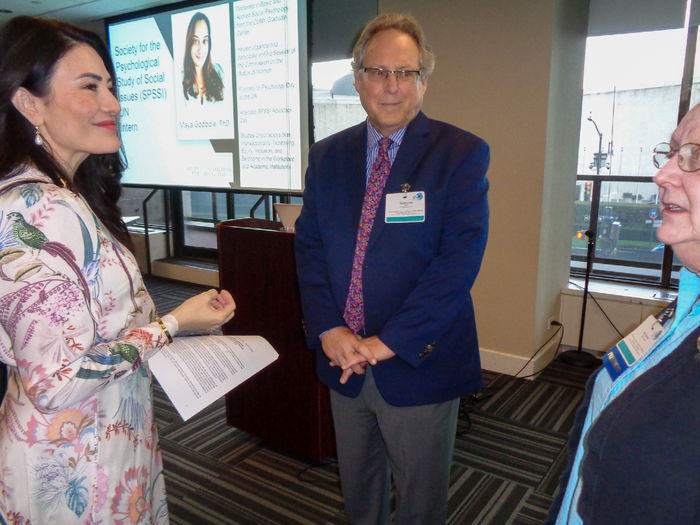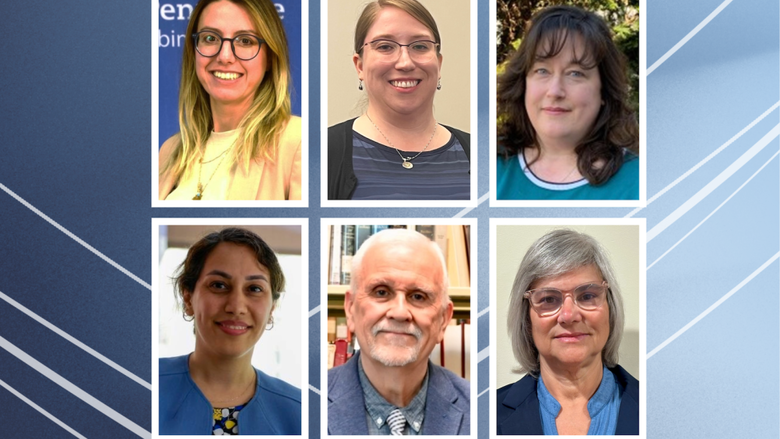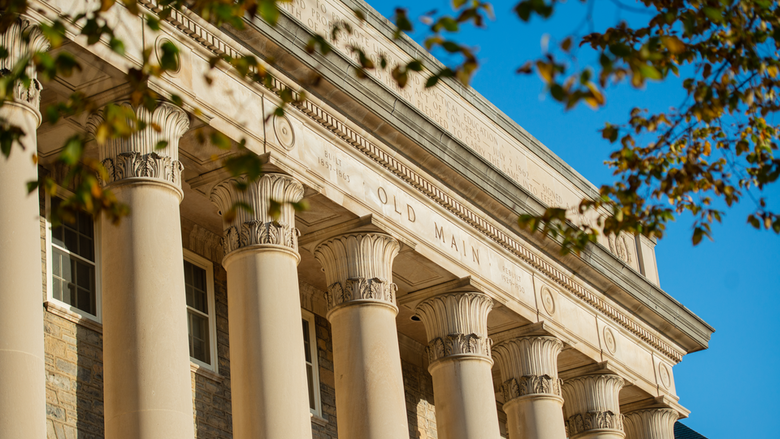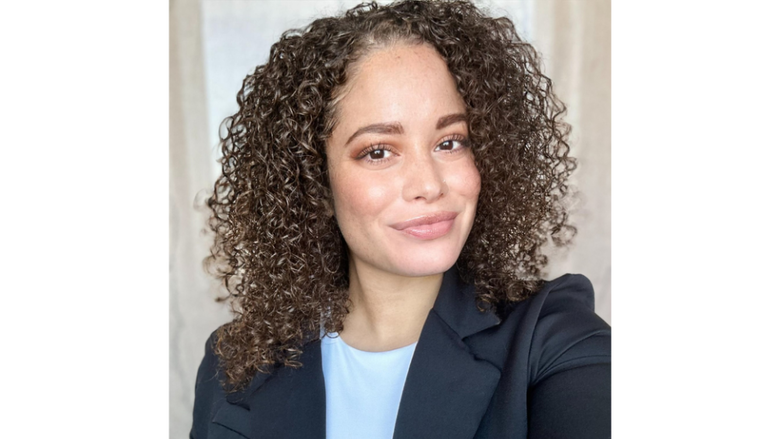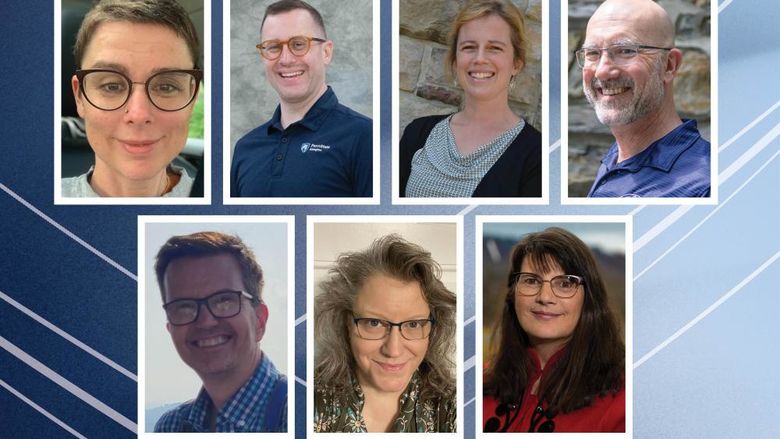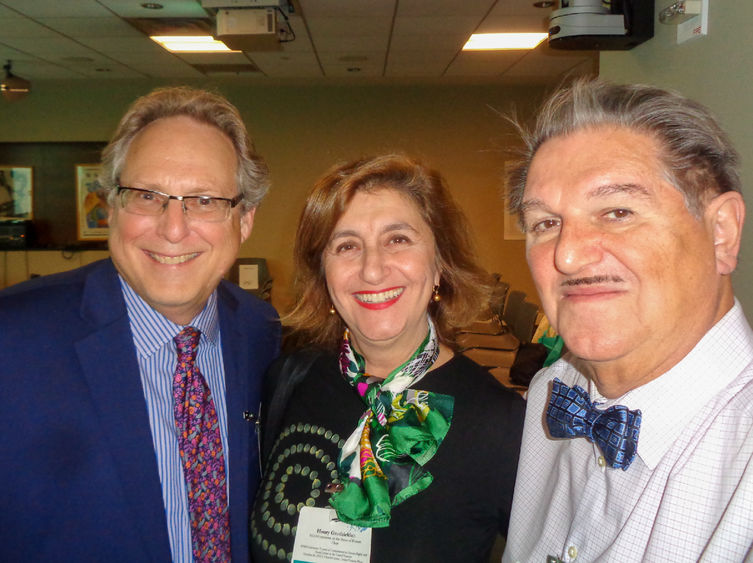
David Livert with Houry Geudelekian, chair, NGO Committee on the Status of Women; and Harold Takoosan, professor of psychology at Fordham University.
CENTER VALLEY, Pa. — Climate change, human rights, and violence against women and children are a few of the many global issues addressed by the Society for the Psychological Study of Social Issues (SPSSI). The organization recently celebrated 75 years of engagement with the United Nations, with an event in New York City. David Livert, professor of psychology at Penn State Lehigh Valley, is the main representative to the U.N. for SPSSI and served as the event’s emcee.
SPSSI is an organization of social sciences that applies research to a wide range of societal problems. Anila Balkissoon, president of SPSSI, said, “Generally, we appeal to scholars with an activist’s heart who aim to take action with their research. SPSSI is a branch of the American Psychological Association. Our work is really important to a psychologist or allied scholar interested in making real world connections with their research.” Policymakers then use this research to make better informed decisions about important issues affecting citizens around the globe.
Livert has been part of SPSSI for over 15 years and has served on the volunteer committee since 2008. As main representative, Livert has many procedural duties — running meetings, processing applications for attendance and registrations, and developing an annual report for the U.N. He also meets virtually with other representatives from around the world to discuss a range of issues.
“This year we’ve done a lot of meetings with missions on an anti-racism campaign. I talked to representatives in Mexico, Costa Rica, South Africa and Ghana,” Livert said.
It’s a tall order to tackle global issues. By working with others who are also interested in making a difference, Livert’s involvement with SPSSI has been worthwhile.
“There’s no pay involved — it’s completely volunteer. The society was founded out of an interest in applying psychology to real world problems and issues. I like applied psychology. It’s an organization that can quickly become your home because of the like-minded people and the strong advocacy bent. Members can get trained and call on elected officials. It’s extremely rewarding but a big time commitment,” he said.
PSU-LV student Angelina Roccamo assisted with portions of the SPSSI event. Roccamo, a third-year psychology major, is working on an honors project giving a cross-cultural perspective on ageism. Livert is her mentor for the project, and Roccamo helped a group of SPSSI’s researchers put together a PowerPoint on the topic that was shown at the event. Although Roccamo could not attend in person, the opportunity to work with world-renowned doctorates was “amazing," she said. "It was a little intimidating at first, but it really helped me learn about the U.N. and NGOs (non-governmental organizations). I’m so appreciative to Dr. Livert for this opportunity."
Roccamo is in good company, as SPSSI is looking to mentor the next generation of research-based activists. Abby Stewart, the organization’s executive director, said young people are hosted in internships and work alongside SPSSI’s members on research and policy issues.
“That intergenerational training is incredibly valuable. The internship is at the U.N. It allows students an amazing opportunity. They get a better understanding about what the U.N. encompasses. They learn things that are really helpful for a researcher to understand — these young people leave with amazing depth of knowledge, such as how to influence policy in an organization."
The event recognized SPSSI’s first 75 years and looks ahead to the future. “We will proceed as we always have, in responding to the problems of the day,” Balkissoon said. “Climate change, sustainability, violence against women, discrimination … that’s not going away. At the event, we made it clear that’s on the agenda. We will continue in the tradition of approaching the day’s most challenging social problems.”
